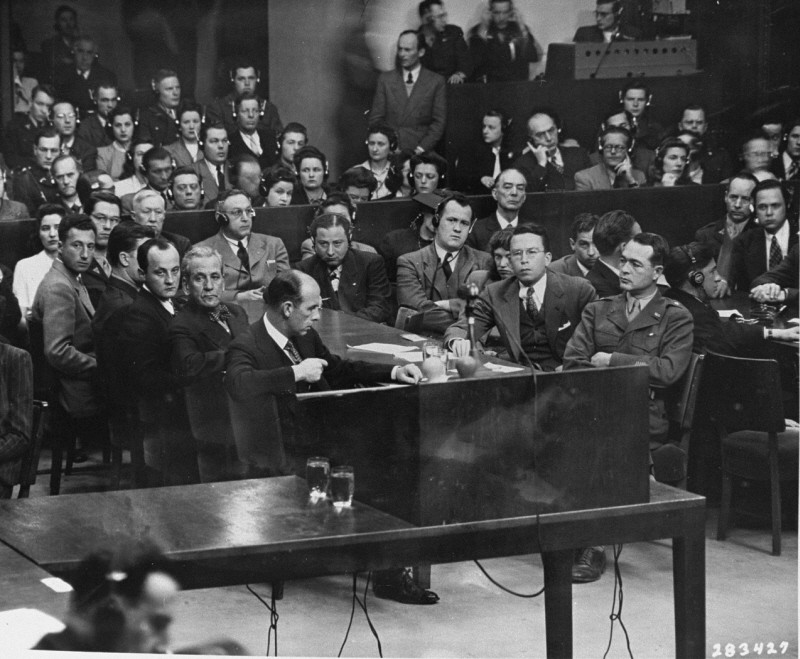
Subsequent Nuremberg Proceedings, Case #2: The Milch Case
After World War II ended, the Allies established courts in each of their occupied zones in Germany to prosecute German officials for their role in the commission of war crimes, crimes against peace, and crimes against humanity. American military tribunals in Nuremberg, Germany, presided over 12 major proceedings against leading German industrialists, military figures, SS perpetrators, and others. Included among these Subsequent Nuremberg Trials was the Milch Case.
United States v. Erhard Milch
On December 14, 1946, the US Military Government for Germany created Military Tribunal II which soon took up the war crimes case of former Field Marshal Erhard Milch. This was Case #2 of the Subsequent Nuremberg Proceedings.
Milch had been indicted on November 14 and his indictment listed three counts:
- participation in the planning and execution of war crimes, namely the subjection of prisoners of war (POWs) and foreign nationals to murder, cruel treatment, and forced labor
- participation in the planning and execution of war crimes, specifically participation in two medical experiments dealing with the effects of high-altitude and freezing
- crimes against humanity
Milch was arraigned on December 20, pleading not guilty. The trial began on January 2, 1947. After 39 trial days, with 34 witnesses and 212 written exhibits introduced, the trial concluded on March 25. The Tribunal returned its findings on April 16, declaring Milch guilty of counts one and three of the indictment but not guilty of count two, that of culpability in medical experimentation. The next day, it sentenced him to life in prison. Milch served his sentence, later commuted to 15 years, in Rebdorf Prison.
Critical Thinking Questions
Beyond the verdicts, what impact can trials have?
How were various professions involved in implementing Nazi policies and ideology? What lessons can be considered for contemporary professionals?
How have some professional codes of conduct changed following the Holocaust?
Is it ever too late for accountability?

